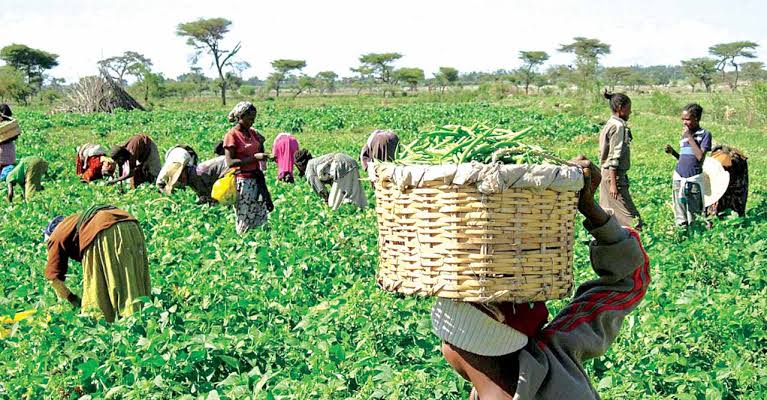The Minister of State for Agriculture and Rural Development, Mustapha Shehuri, has solicited for more financial support to upscale investments in the agricultural sector.
A statement issued by Ezeaja Ikemefuna, Chief Information Officer in the ministry of Agriculture, in Abuja, quoted the minister as saying this at a virtual high-level panel discussion on Friday, to round off activities to celebrate the 2021 World Food Day.
He said that being the focus of government’s diversification agenda, agriculture deserved better funding, to provide credit facilities that would support the sector’s value chain activities.
Shehuri said that the ministry was strongly committed to meeting domestic food requirements, exporting at qualitative levels and creating a favorable business environment that would make agribusiness thrive.
” There is a deliberate strategic approach to job creation, conserving foreign exchange and attaining national food security,” he said.
The minister pointed out that the seed sub-sector supply chain was being repositioned to ensure that farmers had access to quality seeds to improve yields.
“The National Agricultural Seed Council (NASC), under my watch, has been directed to interface with key seed industry stakeholders to ensure that Early Generation Seeds (EGS) are structured, to ensure uninterrupted supply of certified seeds.
” There is also an on-going awareness campaign by the Council on the importance of using improved seeds to boost production,” he said.
The minister added that the administrative bottlenecks that had previously hindered farmers’ easy access to fertilizer had been addressed, while the partnership with the Government of Brazil to pilot the establishment of 117 mechanisation centers across the country was on- going.
” When these centers are completed and made operational, farmers will be able to buy mechanisation services for a fee, with relative ease, and without the need to own expensive equipment for farm operations,” he said.
‘’ Nigeria’s agriculture has done well under this administration in areas such as, being the world leading producer of yams with 18.3 million MT, world leader in the production of Cassava that has steadily risen to 70 million MT”, he said.
Similarly, He added that the country also ranked second as world producer of Sorghum, just after the United States of America, fifth as a global producer of Palm oil and Cocoa, while the Gross Domestic Product (GDP) contribution by the agricultural sector in Nigeria ” has consistently been impressive, year-in-year-out’’.
“Nigeria is a global player in agricultural export and in 2019 it recorded as follows: Sesame Seeds oil: N77.04 billion, Cocoa: N66.73 billion, Cashew Nuts: N45.6 billion, Frozen Shrimps and Prawns: N7.46 billion, Ginger: N3.34 billion, Processed & Semi Processed Agro Food: N1.84 billion and Cotton: N609.33 million.
“The potential in this strategic sector is enormous and there is enthusiasm and political will to return the agricultural sector as the highest contributor to the National Gross Domestic Product by the year 2025,” he said.
Ikemefuna identified other panelists at the virtual event to include: the Senior Special Advisor to the President on Sustainable Development Goals (SDGs), Princess Adejoke Orelope Adefulire represented by her Assistant, Rose Keffas, Senior Special Advisor to the President on Agriculture, Dr. Andrew Kwasari.
Also, at the virtual panel discussion were the UN Food and Agriculture Organisation (FAO) Representative in Nigeria and to ECOWAS, Fred Kafeero, the International Fund for Agricultural Development (IFAD) Country Programme Manager, Patrick Habamenshi.
Others were: the President of the All Farmers Association of Nigeria (AFAN), Arc. Kabir Ibrahim, World Food Programme (WFP) Country Director, Ronald Sibanda, among others.








